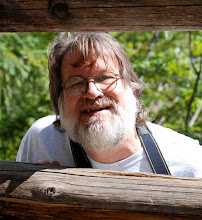On a work assignment I accompanied a Realtor to a dead guy’s house.
We went there to gather info for the post-estate sale real estate sale. We went to meet people from the bank who were handling the transaction for the estate.
The house was awesome. Way too posh for my blood. I suppose I never acquired a huge appetite for ritzy places, primarily because I would rather create or make love or do many other things besides clean and maintain the best house on the block. Even if I had the disposable income to hire a cleaning crew, I am just not that impressed with big places and having so many possessions I need a serious database to keep inventory.
I am more of an idea man. An expansive consciousness with many big ideas suits me much better. My inner landscape is much more important to me than my external world.
This hillside palace was a great place to visit, but I wouldn’t want to live there.
Yet somebody lived and died there. Two people, actually. A husband and a wife. I do not know the order in which they checked out.
As I wandered around the place admiring all the ornate dust-catchers still on the custom-built shelves—one of the bank representatives said that all that we saw was what was left over after the family had come through on their scavenging runs—the idea entered my head that the physically deceased might well be following me as I toured their home. “What are you doing in my house?”
Which got me to thinking.
These people had a lot of stuff. To them, cool stuff. And they couldn’t take it with them. I wondered what they did take with them.
I wondered if they had given any thought to who they were beyond their possessions while they were still ensconced in their palatial home.
At least one of them had had serious medical problems requiring a home hospital bed, wheelchairs, medically-sensitive toilets. I short, it looked as if at least one of them had an opportunity to think at great length before the final curtain fell.
This home filled with mountains of possessions felt strangely empty. Was it just my ego? Was it just me thinking that people who lived such a ritzy life must be morally bankrupt?
I have seen so many spiritually focused people struggling so hard to make financial ends meet while keeping their work lives integrity rich. This seems to have instilled in me a reality-producing belief that part of the dues of being a so-called light worker is serous lack of money. Like many artists and writers, myself included, the drive to pursue the gifts of the spirits often seems to lead straight to Poverty Acres. In so many cases, people who get rich appear to do it in planet unfriendly ways. So many horror stories (and I presume many urban legends besides) feature greed and corporate corruption as primary antagonists.
We’re pretty conditioned these days to
Enron-ron-ron-ron everybody. If you work for a corporation, the feeling goes, you’re a crook trying to rob us blind in some white collar, sleight of hand way.
So when I was in the house, I wondered what these rich people did to screw over the populace so that they could reap the benefits of a palatial hilltop perch.
This does not bode too well for my level of spiritual development. After all, I was making all this up in my mind without knowing anything about the deceased. They could have been great people. They could have generously poured their hearts out to the community each and every day.
So I wondered what the nature of their thinking was as they waited patiently to die. Did they believe that anything followed this physical life? Did they look forward to anything?
Another whole vein of consciousness sprung to mind: amid all of their possessions left behind, did they leave their stories?
These people clearly had the resources to do just about anything they wanted. Did they want to leave behind any of their legacy in a written or audio-visual form? They had a showplace of a house but did they have a showplace of a life?
In our over-hyped, over-stimulated society, many overwhelmed people don’t take time out to record their stories. What events shaped their destines? How did they deal with fortunes and famines? If they made it, why? If they didn’t make it, why not? What was their family background and how did they keep or evolve the family legacy? What did they learn from their spin around the block?
Death for me is a transition, not a termination, and at the end of the line is the infamous (yet in our society the largely ignored) life review. It’s like a graduation from one world to the next. (As they say on the London Tube,
Mind the Gap!) The process of creating a life story or personal history is an especially great way to prepare for this show of shows.
So I wondered if stashed away somewhere in this magnificent edifice of a residence was a book of knowledge, wisdom, and personal history.
”Don’t forget to dust. You never know when unexpected company will appear at your front door.”

